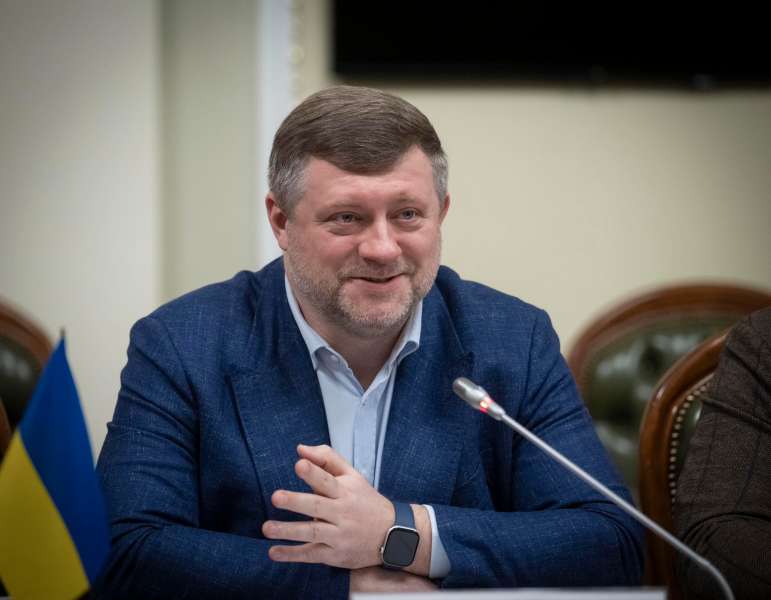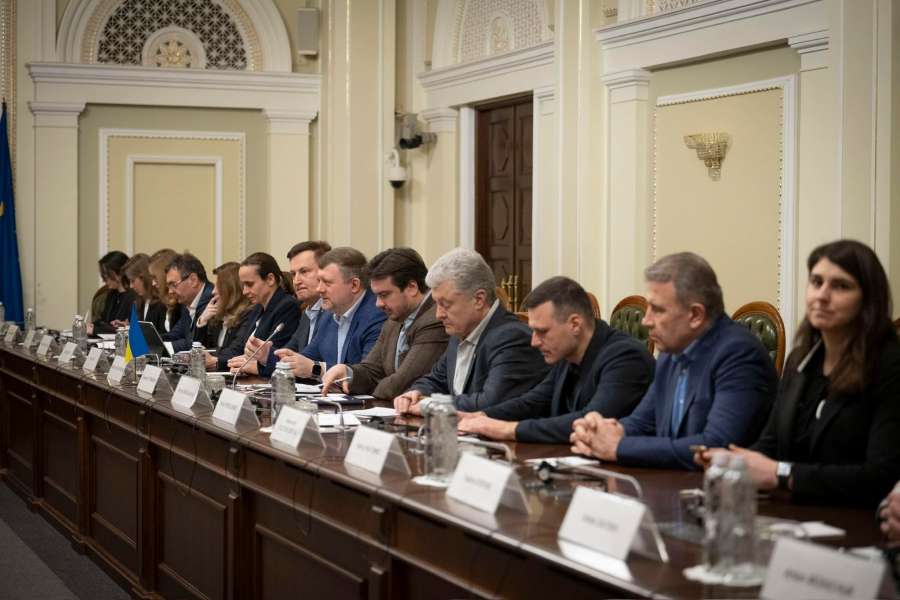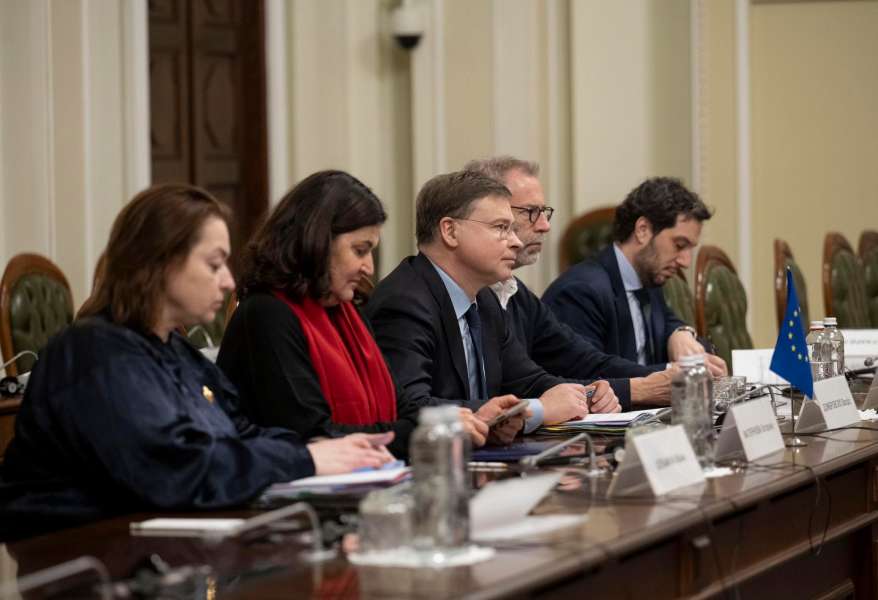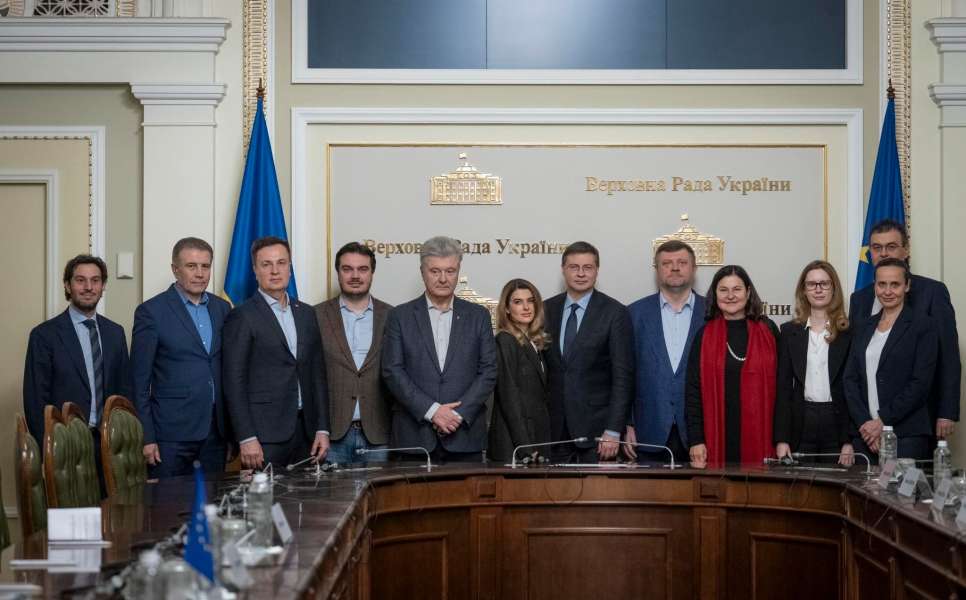On 20 March, Oleksandr Korniienko, First Deputy Chairman of the Verkhovna Rada of Ukraine, and the heads of parliamentary factions (groups) met with Valdis Dombrovskis, EU Commissioner for Economy and Productivity; Implementation and Simplification.
he Ukrainian side was represented by Roksolana Pidlasa, Chairperson of the Committee on Budget, Danylo Hetmantsev, Chairperson of the Committee on Finance, Taxation and Customs Policy, Dmytro Natalukha, Chairperson of the Committee on Economic Development, Yuliia Sirko, First Deputy Chairperson of the Committee on Transport and Infrastructure, Larysa Bilozir, Chairperson of the Subcommittee on Administrative Services and Administrative Procedures of the Verkhovna Rada Committee on State Power Organization, Local Self-Government, Regional Development, and Urban Planning, Oleksandr Koltunovych, Chairman of the Subcommittee on State Economic Policy of the Verkhovna Rada Committee on Economic Development, Valentyn Nalyvaichenko, Secretary of the Verkhovna Rada Committee on Ukraine’s Integration into the European Union, Valerii Hnatenko, Member of the Verkhovna Rada Committee on Budget and Petro Poroshenko, Member of the Verkhovna Rada Committee on Ukraine’s Integration into the European Union.
The foreign delegation was represented by Nicola Sibona, Head of Trade and Economic Section at the EU Delegation to Ukraine, Michael Hager, Head of the Cabinet of Ministers, Katarina Mathernova, Ambassador of the European Union to Ukraine, and Maya Zelmina, Policy Assistant.
The meeting was dedicated to the EU's financial support for Ukraine, in particular through the Ukraine Facility mechanism, and the use of frozen russian assets for Ukraine's restoration. The parties also discussed long-term financing mechanisms and strategic cooperation with international partners. Particular attention was paid to the importance of effective coordination of donor assistance and the future restoration of Ukraine after the consequences of russian military aggression.
«Long-term financial support for Ukraine through the Ukraine Facility instrument is essential for the country's stability and recovery. I assured you that we are committed to the steps envisaged by the Programme. It is aimed at maintaining the macro-financial stability of our country, promoting recovery and reconstruction, as well as modernisation of our country while implementing key reforms on the path to EU accession. It is also about supporting the transition to a green, digital and inclusive economy, which will gradually align with EU rules and standards,» Oleksandr Kornienko said.
«It is important for us to understand how Ukraine will live in 2026-2027. The EU's support enables us to maintain the projected stability. We expect effective work on budget planning. We are grateful for the EU's support and practical assistance all along. We highly appreciate our cooperation,» the First Vice Speaker noted.
The participants of the meeting also discussed the EU-Ukraine autonomous trade measures that will expire in June this year. According to the First Vice-Speaker, it is extremely important to reach a decision regarding these measures or build an alternative path. «This is necessary, in particular, for the economic stability of our country,» he stated.
It is worth noting that the EU is Ukraine's main trading partner. In 2024, the share of trade in goods with the EU was 53.8% of Ukraine's total trade. «The peculiarities of Ukraine's trade with the EU during the war help sustain our country's GDP while allowing investments in defense and social stability,» said the Chairman of the Committee. According to him, Ukraine seeks full integration into the European market. «This is our ultimate ambition. We want to become part of the EU supply chains. We are already a part of the EU's food security and aim to contribute to its open strategic autonomy strategy. We strive to be a stable trade partner,» emphasized Dmytro Natalukha.




